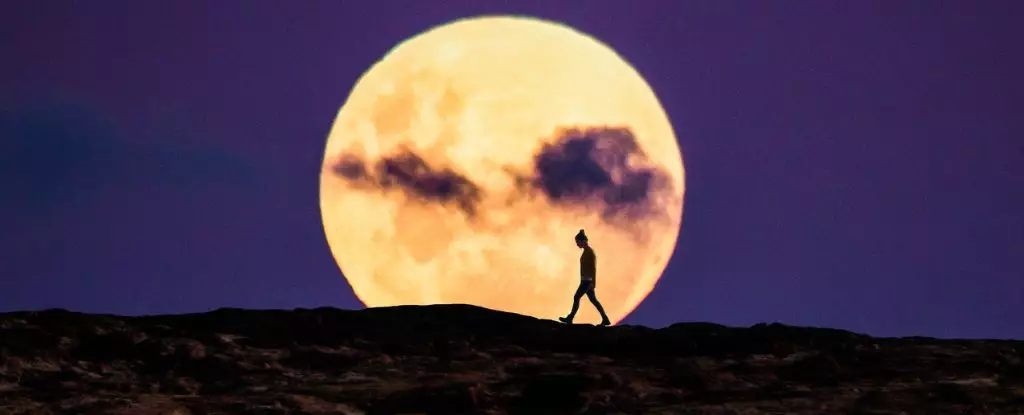This week, stargazers across the globe are treated to a remarkable cosmic display as the biggest and brightest supermoon of the year makes its appearance. Described by NASA as a full moon that occurs comparatively close to Earth, this extraordinary sight promises to captivate viewers from various locales. Visible from urban settings to remote areas, the supermoon embodies a rare opportunity for people to engage with astronomy without the need for specialized equipment.
Understanding the Supermoon
The term “supermoon” refers to the phenomenon of a full or new moon coinciding with the moon’s closest proximity to Earth, known as perigee. Researchers note that when this alignment occurs, the moon can appear up to 14% brighter than usual. This week’s supermoon is particularly striking, hitting perigee on Wednesday evening at approximately 8:50 PM ET, positioned about 221,938 miles away from Earth—around 17,000 miles closer than average. The culmination of this event will lead to the full moon status shortly after, at 7:26 AM ET on Thursday morning.
Viewing Tips and Optimal Timing
For those wanting to appreciate the supermoon in all its glory, the ideal time will be during Wednesday and Thursday evenings. Observing the moon as it rises above the eastern horizon can enhance the viewing experience, creating an optical illusion that makes the moon appear larger and more magnificent against the backdrop of surrounding trees and buildings. To find out specific rise and set times in various regions, tools like Time and Date’s moonrise and moonset calculator can be invaluable for enthusiasts eager to catch every moment.
Although the supermoon is bright enough to be appreciated without any special gear, utilizing a telescope can significantly enrich the viewing experience, revealing intricate details of the lunar surface that are otherwise missed by the naked eye. Astronomers suggest sharing this wondrous moment with family or friends to add a communal sense of wonder and discovery to the event.
Interestingly, this supermoon is not just another celestial occurrence; it is the third in a series of four supermoons this year, culminating with its formidable appearance this week. The uniqueness of this specific full moon is pinpointed by its proximity to perigee, making it the most impressive supermoon of the year. Even astronomer Wes Ryle emphasizes that it edges out the previous month’s supermoon modestly, elevating it to the pinnacle of lunar events for 2023.
Furthermore, this moon is designated as the Hunter’s Moon—a traditional name derived from the time families would prepare for winter, as animals increase their food intake in preparation for the cold months ahead. The association with hunting adds depth to the cultural significance of this celestial event, emphasizing not just the scientific phenomena at play but also the human stories interwoven with nature’s rhythms.
While this supermoon is set to dazzle observers, enthusiasts need not worry about missing out on such events. Supermoons are relatively common, often occurring in clusters. Following this astronomical spectacle, another supermoon will rise in November, and with a few years ahead, a series of supermoons awaits in late 2025. It’s essential to keep an eye on the lunar calendar and appreciate these impressive displays not just as isolated events, but as part of the larger tapestry of our place in the universe.
As the biggest and brightest supermoon of 2023 illuminates our night skies, it stands as a reminder of the beauty and wonder that exists beyond our planet. Each supermoon invites us to pause, step outside, and marvel at the cosmos. In a world often consumed by chaos and distraction, the serene glow of a supermoon serves to reconnect us with the natural world and its cycles. Whether you’re a seasoned astronomer or a casual observer, the opportunity to witness this celestial spectacle is not to be missed. So gather your loved ones, head outdoors, and let the awe of the night sky enchant you.


Leave a Reply